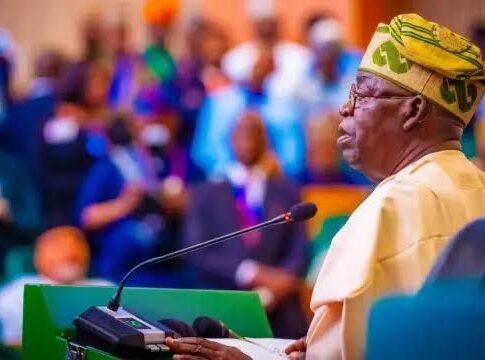The Nigerian government has earmarked N27 billion for the entitlements of former leaders, retired civil servants, and professors in its 2025 budget. This allocation aims to support dignitaries, including ex-Presidents Olusegun Obasanjo, Muhammadu Buhari, and Goodluck Jonathan, as well as other former public servants.
Unveiling the N49.7 trillion “Budget of Restoration” at the National Assembly, President Bola Tinubu emphasized a commitment to rebuilding infrastructure and boosting human capital development. “Our focus remains on strengthening national security, improving livelihoods, and addressing infrastructure deficits,” Tinubu told lawmakers on Wednesday.
The budget includes N2.3 billion specifically for former presidents, vice-presidents, and heads of state. An additional N10.5 billion will go to retired heads of service and permanent secretaries, while N13.5 billion is allocated to retired professors.
READ MORE: Mozambique’s Post-Election Unrest and Cyclone Chido Threaten Economic Growth, IMF Warns
General Yakubu Gowon and General Ibrahim Babangida are among the ex-military leaders set to benefit. “This reflects the government’s recognition of our past service to the nation,” a retired public servant commented.
Pensions and Social Welfare
The Federal Government allocated N814 million for pension verification exercises and N43 billion for security debarment allowances, including arrears dating back to 2017. Another N1.86 billion is set aside for pension arrears tied to minimum wage adjustments.
To combat poverty, N500 billion will fund social initiatives, including a student loan scheme and school feeding programs. Since April 2024, the Nigerian Education Loan Fund has disbursed N104 billion to over 613,000 students.
Broader Financial Strategy
Tinubu’s ambitious budget projects a N13.39 trillion deficit, to be financed through borrowing. Defence, infrastructure, and education top the spending priorities.
The 2025 budget outlines significant allocations for pensions, gratuities, and social welfare programs. Observers note that these provisions aim to address both historical liabilities and current challenges.




